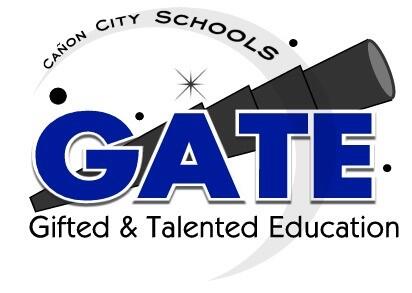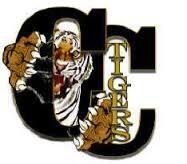High School Family Guide


Check out the CCHS Pathways Handbook for Information:
https://4.files.edl.io/24be/06/24/19/205230-815841f8-1e1a-42b8-a6ba-3898e3b62401.pdf
College Overnight Field Trip 2024 will take place on February 20-21,2024. *Please see Mr. Carter for permission slip.
Educational acceleration is the practice of presenting curricular content at a faster pace or at an earlier age than usual. Common examples of acceleration include, but are not limited to, advanced-level classes, completing curriculum in a shorter-than-normal period of time, acceleration in content areas, credit by examination, grade acceleration, and early entrance into college. In all forms of acceleration, it is important that the content be differentiated to meet the needs of individual students. The choice of how to accelerate the curriculum for a particular student should be based on the individual needs of that student.
Concurrent enrollment provides high school students the opportunity to take college-credit bearing courses taught by college-approved high school teachers. It is a low-cost, scalable model for bringing accelerated courses to students in high school.
College and career planning for gifted students helps delineates the steps necessary for successful college preparation. Topics regarding college planning for parents include: twice exceptionality, underachievement, homeschooling, extracurricular activities, multi-potentiality and sensitivity to expectations. The gt specialist also provides practical advice for: writing college application essays, requesting letters of recommendation, visiting colleges and doing well on the college entrance interview.
Ten Essential Tips to Help Your Gifted Teen Plan for College
https://giftedchallenges.blogspot.com/2014/11/ten-essential-tips-to-help-your-gifted.html
There are more than 3,000 colleges and universities in the United States. Choosing among them is a complex task. Recruiting procedures and a wide variety of publications such as college viewbooks offer idyllic scenes of campus life, but do little to clarify student decision making. The increasing number and variety of books on how to get accepted by the college of your choice adds to the anxiety and expectations. Unless the match between institutions and students is truly a good one, both are likely to be disappointed.
Gifted and talented (GT) students often have problems beyond those of most other students who consider college and career choices. A systematic, collaborative approach is needed whereby students learn that college planning is part of life career development; it need not be a finite event that begins and ends mysteriously or arbitrarily.
Learning about Oneself: a 6-year Process
A coherent, programmatic approach to college planning provides opportunities for students to obtain information from counselors, other adults, and peers who understand their needs and who will listen to them, interpret and clarify their experiences, and discuss their concerns about changing self-concepts. Students can learn about themselves, their community, and career options in a wide variety of ways. College Planning for Gifted Students (Berger, 1989) provides detailed information.
- Seventh and Eighth Grades. Guidance activities emphasize self-awareness, time management, work/study skills, and an introduction to career awareness. Students develop a 4- to 6-year academic plan and decision-making skills. Participation in regional talent searches is encouraged, and students are provided with information on the Scholastic Aptitude Test (SAT) and/or the American College Test (ACT), the screening instruments employed by talent searches. Planning for advanced courses often begins as early as the eighth grade, especially in the case of sequential courses such as mathematics, languages, and sciences.
- Ninth and Tenth Grades. Guidance activities continue to help students clarify intellectual and social/emotional experiences, establish a sense of identity and direction, and set short- and long-term goals. Students are encouraged to identify and pursue interests. By 10th grade, they become aware of how their academic subjects, values, interests, and goals relate to careers. They also begin to learn that some interests and talents develop into artistic or scientific convictions while others develop into leisure activities.
- Eleventh and Twelfth Grades. Guidance activities include arranging for mentor relationships and internships. Through group workshops, students learn how colleges make selections, who is involved in the admissions process, how students are evaluated, and what they can offer that a college requires and desires. They learn about the application process and how to present themselves so that the institution will recognize them as a good match.
Parents can support an effective guidance program by participating in school career centers and providing students with opportunities for enrichment.
Learning About Colleges
Learning about colleges is a two-step process. Step 1 involves collecting general information by reading, talking with people (asking questions), and visiting colleges. By the end of 11th grade, the student should be able to develop a list of 10 to 20 colleges based on personal criteria. Step 2 involves analyzing and evaluating information. Students should be attuned to their needs and be creative researchers. By the middle of 12th grade, the student should be able to narrow his or her list to five or six colleges, taking into consideration (a) personal values, interests, and needs; (b) the variety and range of available college opportunities; (c) realistic constraints such as cost and distance; and (d) the method used by the colleges to select a freshman class (selectivity factor). The final list should include a safety school (one that will definitely accept the student), a long shot (admissions criteria are slightly beyond the student's credentials), and three or four colleges having admissions criteria that match the student's credentials.
Some gifted students are drawn to the most selective colleges and universities, schools that receive more than 10 applications for every freshman vacancy. A student who aspires to a highly selective college can expect a highly competitive application review. Students should understand that the way they address the application process may be the critical factor determining acceptance or rejection.
The application requires the following two kinds of information:
- Objective information including biographical data, information on academic performance, standardized test scores such as SATs or ACTs, Achievement Test scores, advanced placement (AP) examination grades, and additional numerical information.
- Subjective information including extracurricular activities, recommendations, essay and/or personal statement, and a personal interview.
What Colleges Look For
- Academic performance: Grade point average and class rank.
- Academic rigor: Evidence of superior ability in the form of honors, GT, or AP courses. (Some colleges ignore honors or GT classes because they are of unknown quality.)
- Depth of study in areas such as foreign languages and mathematics.
- Quality: Four or five academic subjects each year (English, mathematics, science, history, language).
- Balance: Evidence that the student took a broad curriculum (mathematics and science, history, and English courses)
- Trends: Evidence as to whether the student's grades are gradually improving each year. Recent performance is the most important indicator of the student's current level of ability and motivation.
- Consistency: The parts of the application should fit together to provide a common theme and make the student "come alive" on paper. Recommendations should support and be consistent with both the academic record and what the student says about himself or herself. A quirk in the transcript (e.g., a low grade in an academic course during 11th or 12th grade) should be accompanied by an explanation. High SAT scores combined with a relatively low GPA provide an inconsistent picture of an applicant (e.g., high ability/low motivation). The student should address these situations in an essay or personal statement.
- Standardized tests: PSATs, SATs, ACTs, and Achievement Tests are the only objective way a college can compare students from all parts of the country. Some large universities screen a vast number of applicants by combining each student's SAT or ACT score with GPA and class rank. Students who are not good test takers should avoid such colleges or make sure that their scores are not so low that they can be eliminated from consideration. Selective schools may emphasize achievement test scores. If students wait until senior year, only three tests may be taken.
- Extracurricular activities and other supporting material: When highly selective colleges decide between two students who are academically equal, the creative presentation of extracurricular activities, the quality of recommendations, the essay or personal statement, the interview, and other supporting material make a difference.
- Community service: Admissions officers know that an altruistic student, one who contributes to community life without regard for compensation, is likely to contribute to college life, be academically successful, and form a long-term attachment to the college or university.
- Recommendations: Counselor and teacher recommendations should present a positive picture of the applicant, distinguish between the applicant and others who are equally qualified, and be consistent with the rest of the student's application.
- The application essay: The essay can reassure the admissions committee that the student is capable of college-level work. Many gifted students have a difficult time with open-ended questions. Some create beautiful prose that, on the surface, is convincing. A closer look may reveal that none of the ideas are documented, grounded in fact, or based on any genuine information.
A GT counselor's role as student advocate and resource does not end when letters of acceptance arrive. Some students have difficulty breaking away. These students spend years in academic and social activities that nurture close friendships, and they sense that their lives are about to change. Although this is true for adolescents in general, gifted students may especially need guidance activities that ease the transition from high school to college.
College and career planning may be particularly difficult for some gifted students. However, it can be a growth-promoting experience for all participants when the ultimate goal--student decisions based on realistic criteria that result in a satisfying life--is kept at the forefront of all decision-making activity.
Please see the school guidance counselors and/or the gifted specialist at the high school for more information.
More to come on ICAP development.

.png)
